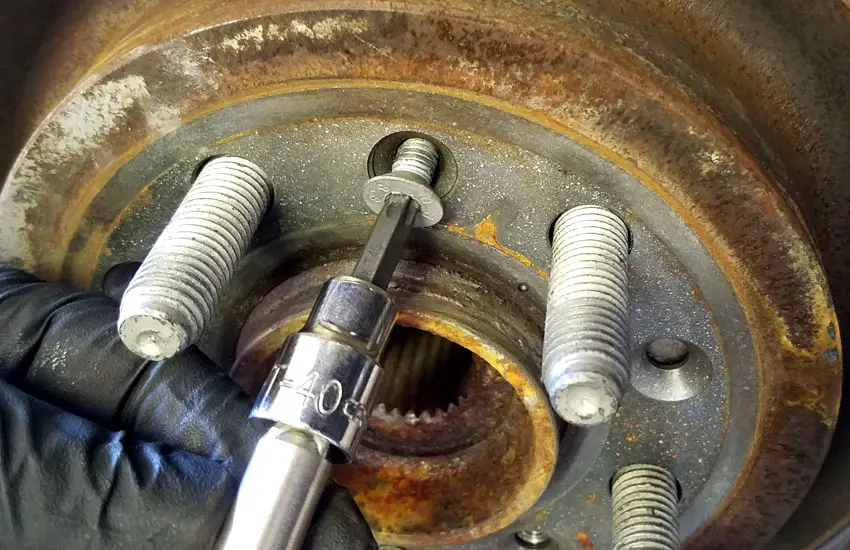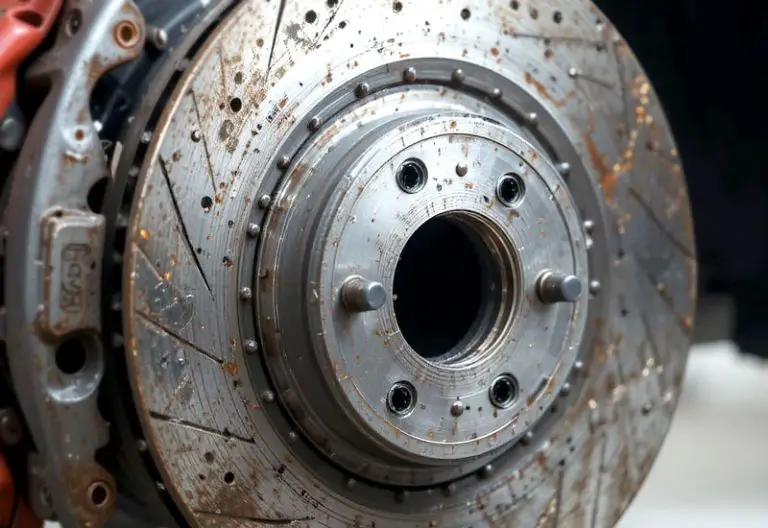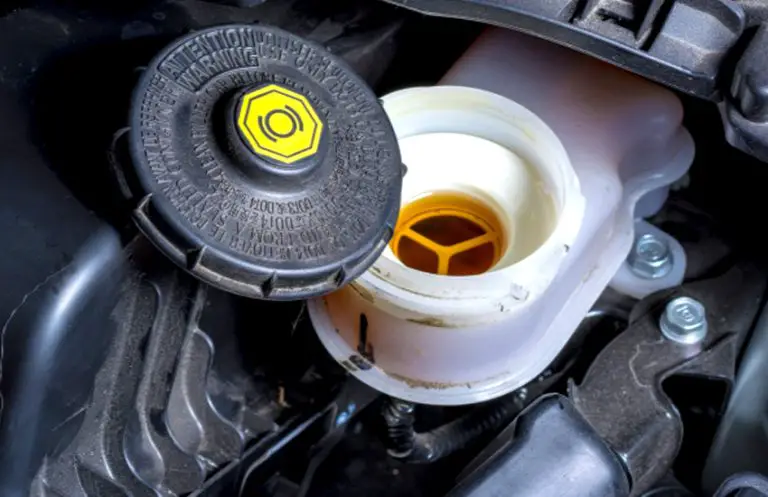Imagine you’re on a long drive, cruising down an open highway, and you suddenly hear a strange noise coming from your vehicle. You pull over to check, and it turns out that your brakes aren’t functioning the way they should. It might sound like a scary situation, but it’s more common than you think. And it often comes down to the little things – like rotor retaining screws.
You may be wondering, “What are rotor retaining screws, and are they really that important?” If you’ve ever had to replace the brake rotors on your car, you may have noticed these small screws. They don’t seem like much on their own, but in the world of automotive engineering, they play a surprisingly critical role. In this blog post, we’ll dive into why rotor retaining screws are essential and how they contribute to the overall safety and performance of your vehicle.

What Are Rotor Retaining Screws?
Rotor retaining screws, often referred to as brake rotor screws, are small screws that hold the brake rotor in place on the wheel hub. They are commonly used in disc brake systems, primarily in vehicles like cars, trucks, and motorcycles. These screws keep the rotor securely attached to the wheel hub during the assembly process, making it easier for mechanics to work on the vehicle.
The rotor itself is a critical component of the braking system. It’s the part that the brake pads press against to create friction, which slows down or stops the vehicle. Without a securely fastened rotor, the braking system could become ineffective or even fail. That’s where the rotor retaining screws come in.
While the primary function of rotor retaining screws is to secure the rotor in place during installation, they also provide several secondary benefits. These screws help keep the rotor aligned, which is important for proper brake function. They ensure that the rotor doesn’t shift or move out of place, which could lead to uneven wear, poor braking performance, or damage to other brake components.
Why Are Rotor Retaining Screws Essential?
Rotor retaining screws are essential for several reasons, all of which relate to the safety and efficiency of your braking system. To understand their importance, let’s look at a few key aspects:
1. Proper Rotor Alignment
When the rotor is mounted to the wheel hub, it needs to be properly aligned to function correctly. If it shifts out of place or becomes misaligned, it can cause uneven wear on the brake pads, leading to reduced braking performance. This misalignment can also create vibrations when braking, making the driving experience uncomfortable and potentially dangerous. Rotor retaining screws keep the rotor securely fastened to the hub, helping to maintain proper alignment and ensure the brake pads wear evenly.
2. Safety Considerations
The braking system is one of the most critical safety features of your vehicle. If the rotor becomes loose or detached from the hub while you’re driving, it can lead to catastrophic brake failure. This could result in an inability to slow down or stop the vehicle, potentially causing an accident. Rotor retaining screws are an extra layer of security that ensures the rotor stays in place, reducing the risk of a serious brake failure.
3. Facilitating Brake Service and Maintenance
Brake systems require regular maintenance to ensure they function optimally. When replacing or servicing the brake rotors, mechanics need to remove and install the rotors multiple times. Rotor retaining screws make this process easier by holding the rotor in place during disassembly and reassembly. Without these screws, it would be much more difficult for mechanics to work on your brakes, leading to longer repair times and potential damage to other components.
4. Preventing Rotor Warping
When the rotor is not securely fastened, it can warp due to the heat generated during braking. Warped rotors cause uneven braking, leading to vibrations, noise, and reduced stopping power. The rotor retaining screws help keep the rotor in place, preventing it from shifting during braking and reducing the likelihood of warping over time.
5. Maintaining Brake Pad Performance
Brake pads rely on consistent contact with the rotor to perform their job effectively. If the rotor is not properly secured, it can move or shift during braking, leading to inconsistent contact between the pads and the rotor. This can result in uneven brake pad wear, reducing their lifespan and effectiveness. Rotor retaining screws help ensure the rotor stays in place, promoting even contact between the brake pads and the rotor for optimal braking performance.
Do Rotor Retaining Screws Affect Brake Performance?
Now that we’ve covered the basics of rotor retaining screws and their importance, let’s address a common question: Do rotor retaining screws actually affect the performance of the brake system?
The short answer is yes – indirectly. Rotor retaining screws don’t directly affect the braking power, but they play a crucial role in ensuring the rotor functions properly, which in turn affects the overall performance of your brakes.
Here’s how:
- Even Wear and Tear: When the rotor is properly secured with retaining screws, it remains aligned, which means the brake pads will wear evenly. This ensures that your braking system performs consistently, without the risk of reduced stopping power due to uneven wear.
- Smooth Operation: The screws prevent the rotor from shifting or vibrating, which could otherwise cause unwanted noise and vibrations during braking. This contributes to a smoother, more comfortable driving experience.
- Heat Dissipation: Brake rotors are subjected to intense heat during braking, which can cause them to warp or become damaged if they’re not properly secured. By holding the rotor in place, rotor retaining screws help ensure that the rotor remains stable, allowing it to dissipate heat more effectively. This prevents overheating and prolongs the lifespan of your brake system.
In essence, while rotor retaining screws don’t directly enhance brake performance in terms of stopping power, they ensure that your braking system operates efficiently and reliably, which is essential for safe driving.
Can You Drive Without Rotor Retaining Screws?
You might be wondering if it’s possible to drive without rotor retaining screws. After all, the rotor still appears to be attached to the wheel hub even without these screws. While it’s technically possible to drive without them, it’s not advisable.
Here’s why:
- Risk of Rotor Displacement: Without the retaining screws, there’s nothing holding the rotor securely in place. Over time, the rotor could shift or move, causing the brake pads to wear unevenly and potentially leading to brake failure.
- Increased Wear and Tear: If the rotor is not properly secured, it can become misaligned, which increases the chances of the brake pads wearing out faster. This can result in costly repairs down the line.
- Compromised Safety: The biggest concern is safety. If the rotor becomes loose or detached, the braking system could fail completely, leaving you unable to slow down or stop the vehicle. This is a serious safety risk, especially when driving at high speeds or in emergency situations.
In short, while the vehicle may function temporarily without rotor retaining screws, it’s not worth the risk. Always ensure that these screws are properly installed whenever your rotors are replaced or serviced.
Are These Questions in Your Mind?
Is it possible to drive a car without rotor retaining screws?
No, it is not safe to drive without rotor retaining screws. These screws hold the brake rotor securely in place and prevent it from shifting or becoming misaligned, which can cause uneven brake pad wear, vibrations, and even brake failure.
Can rotor retaining screws be reused after rotor replacement?
In most cases, rotor retaining screws can be reused if they are in good condition. However, it’s always a good idea to inspect the screws for signs of wear or damage and replace them if necessary.
Do I need to replace rotor retaining screws when replacing brake rotors?
It’s not always necessary to replace the rotor retaining screws when replacing the brake rotors. However, if the screws are rusted, damaged, or stripped, it’s recommended to replace them to ensure proper rotor installation.
Is it safe to drive with a loose rotor retaining screw?
Driving with a loose rotor retaining screw is dangerous and should be avoided. A loose screw can cause the rotor to become misaligned or shift, leading to uneven wear and potential brake failure.
Can rotor retaining screws be tightened with a regular screwdriver?
Rotor retaining screws are usually tightened using a torque wrench to ensure they are fastened securely without over-tightening. A regular screwdriver might not provide the necessary torque for proper installation.
Do I need to replace rotor retaining screws every time I change the brake pads?
It is not required to replace the rotor retaining screws every time you change the brake pads. However, it’s important to inspect the screws during each brake service to ensure they are still in good condition.
Is it possible to install a rotor without using retaining screws?
It’s technically possible to install a rotor without retaining screws, but it’s not recommended. The screws provide extra security and help keep the rotor in place during installation, ensuring optimal brake performance.
Can rotor retaining screws become damaged over time?
Yes, rotor retaining screws can become damaged over time due to exposure to heat, rust, and corrosion. If the screws become stripped or damaged, they should be replaced immediately to ensure proper rotor installation.
Do I need to torque rotor retaining screws to a specific value?
Yes, rotor retaining screws should be torqued to a specific value, which is usually specified by the manufacturer. This ensures the screws are tight enough to hold the rotor securely without causing damage to the screw or rotor.
Can rotor retaining screws cause brake noise?
Rotor retaining screws are unlikely to directly cause brake noise, but if they are loose or improperly installed, they can lead to rotor misalignment, which may result in brake noise or vibrations.
I hope this post has helped you understand the importance of rotor retaining screws in your vehicle’s braking system. While they may seem small, they play a vital role in maintaining rotor alignment, ensuring safety, and improving brake performance. Always make sure these screws are properly installed and in good condition when servicing your vehicle’s brakes.


